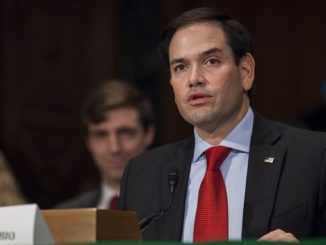
Over the past few weeks, record temperatures, power outages, and water shortages, along with a 50 percent rise in the price of some food items, have triggered scattered protests across Iran, Bloomberg writes. As bad as things are in the country, they’re about to get worse, with the new sanctions banning purchases of U.S. dollars by Iran and preventing trade of gold, metals, and automobiles.
Only three years after the JCPOA was signed, instead of enjoying the fruits of the accord, Iranian President Hassan Rouhani has to explain what went wrong and how he plans to deal with the issue.
Just a day before the fresh U.S. sanctions hit Tehran, Rouhani indicated the U.S. needs to ease the incoming measures before he’d agree to any talks. According to Bloomberg, to some observers, Rouhani’s attempts to deal with the situation have been reactionary and not part of a coherent strategy.
“They’re dealing with crises as they happen. The people have lost their trust, and they are craving efficiency. They don’t care if it comes from men with beards or neckties,” Saeed Laylaz, pro-reform economist who has advised the government, tells Bloomberg.
Meahwhile, Tehran is trying to amp up the pressure on an international level, with the Iranian ambassador to the UN claiming that “the U.S. is making history not just by violating a United Nations security council resolution it voted for three years ago, but also by penalizing countries who stick to the same unanimous resolution”, per Guardian.
“For the first time in the history of the United Nations, the United States – a permanent member of the security council with veto power – is engaging in penalizing nations across the entire world; not for violating a security council resolution, rather, for abiding by it,” Gholamali Khoshroo argues.
“The U.S. withdrawal from JCPOA and re-imposition of its sanctions is a serious breach of its legal obligations under the United Nations Charter, which entails its international responsibility. The international community must act in the face of this international intimidation and affront towards the international legal order,” the Iranian diplomat added.
Tensions between the two sides further intensified on Wednesday, as a recent Iranian naval exercise appeared to be linked to President Trump’s decision to reimpose trade sanctions, Washington Post informed.
“We are paying attention. We’re extraordinarily vigilant and watching for changes in the environment,” General Joseph Votel, head of U.S. Central Command, told reporters at the Pentagon.
According to the Iranian government, the exercise in the Strait of Hormuz, a key commercial passageway off the Iranian coast, is only a “routine exercise by the Islamic Revolutionary Guard Corps.”
The Post notes that U.S. military leaders do not favor a conflict with Iran at a time when the Pentagon is seeking to shift its focus to competition with Russia and China, and they also hope to avoid moves that would trigger a renewal of attacks on U.S. personnel by Iranian-backed militias, which occurred widely in Iraq after the 2003 invasion.




Be the first to comment